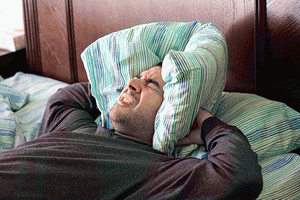 The fact that most people in the US do not get the recommended eight hours of sleep is well known. Most of us have trouble not because we cannot fall asleep but rather because we are engaged in other activities and delay those ZZZZZ.
The fact that most people in the US do not get the recommended eight hours of sleep is well known. Most of us have trouble not because we cannot fall asleep but rather because we are engaged in other activities and delay those ZZZZZ.
Social gatherings, watching TV or just mindlessly scrolling through social media news feeds keeps many of us up late into the night. Missing those hours of sleep can come at a hefty price, on the opposite end of the spectrum getting enough sleep (seven to eight hours) yields many benefits.
In a previous article, we discussed some of the issues regarding lack of sleep. Let us elaborate a bit more on this connection and what it can do to you, as well as realizing the many benefits that you can gain from a better sleeping cycle.
Benefits of Sleeping Early
Reduces Anxiety
When we have a bad day, our mom would tell us to just go to sleep and things will be better in the morning. Well, she was right! Compared to those who sleep early, people who go to bed late are more prone to repetitive negative thoughts and feelings anxiety the next day.
The same study that concluded the above-mentioned effects of sleeping late also mentioned that an abnormal sleeping cycle also leads to the development of a pessimistic mood. On the other hand, sleeping early and having a normal sleep cycle can help tackle this issue. Sure, going to bed early doesn’t really solve the issues you face in life, but it sure helps you in addressing them in a better way and makes you better prepared for the next day. A well-rested mind is better at dealing with stress and problems faced in daily life.
Your Social Skills Take a Turn for the Better
Little or less sleep leaves people feeling more irritated and more prone to having arguments with others. Short temper, feelings of irritability, and anxiety are all heightened if you fail to get enough sleep. All this leads to lesser productivity. You might mess up that big promotion that was heading your way as sleep deprivation leads to misunderstandings with those around you.
On the bright side, being adequately rested leads to a calmer demeanor. A person with a rested mind can gather their thoughts and reassess their relationship with their colleagues and loved ones clearly. Individuals who have had enough sleep feel more optimistic and tend to be more patient in dealing with people.
Increases the Likelihood of a Safer Commute
Roughly 60% of the older drivers claim to have driven their cars in a drowsy state and more than 30% say that they have actually fallen asleep behind the wheel. This can be as dangerous (or even more dangerous) than driving drunk!
It is scary when you realize that sleep deprivation increases the chances of a road accident due to the driver being in a less alert state. Given the statistics by government agencies and foundations, people who sleep six hours are twice as likely to cause road accidents relative to those who sleep for eight hours or more. And the picture gets even grimmer if an individual sleeps for less than five hours; then, the risk of an accident increases by five times!
Your Productivity at Work Will Increase
 How many of us get so tired at work that we actually start falling asleep at the desk?
How many of us get so tired at work that we actually start falling asleep at the desk?
The dilemma staring blankly at your desk after a late night waiting for a miracle to happen is something everyone can relate to. Sleep deprivation adversely affects your cognition and it becomes harder for your brain to perform basic tasks such as alertness and concentration, not to mention raising the odds of getting fired when your boss walks by.
Lack of sleep also hampers creativity. A recently conducted study found that people who slept enough performed 30% better on the same puzzle that was done in a sleep-deprived state. There is enough scientific research to point out the relation between better sleep and an improved cognitive ability that can help an individual deal with complex issues both at work or elsewhere.
Weight Loss Is Tackled Better
When an individual is deprived of sleep, they are prone to eat foods that are high in sugar content (caramel lattes, chocolates, etc) and have less willpower and energy for exercise.
In addition, studies have shown that the later you stay up, the more calories you will consume. Our body’s biological setup is hardwired to crave fatty, salty, and sugary foods after 8 p.m. People who tend to stay up till or past 4 a.m. consume 500 calories on average more than people who sleep by 10 p.m.
How to Get Better Sleep
You might be tempted to go for sleeping medications to help you fall asleep early but do not fall into the prescription drug snare. These drugs interfere with the natural sleep cycle and come with side effects such as nausea, night sweats, and a constant need to go to the bathroom. Sleep medications are made to have early benefits, within the first two weeks, and are not designed to be a long-term solution. In fact, continued use increases tolerance and a higher dosage is required to have the same effect which leads to adverse results on health.
Try going to sleep and rising up at the same time every day including weekends. This helps your body optimize the quality and timing of your sleep. And sleeping in on the weekend just offsets the balance of the body’s internal clock. If you need to make up for a late night, then you can take a nap during the day instead of sleeping in. Daytime naps do not interfere with your sleeping cycle or internal body clock regulations.
Factors Affecting Your Sleep
 If you do have problems sleeping, it may be due to a physical factor, such as sleep apnea or insomia. If you think you may have this disease, you should contact your doctor who can set up sleep tests for you. Or if you think it you sleep is being deprived due to other than sleep apnea, you still should consult a physician. Other causes of a lack of sleep could be worry and anxiety. If so, there are methods that can help you control these factors as well.
If you do have problems sleeping, it may be due to a physical factor, such as sleep apnea or insomia. If you think you may have this disease, you should contact your doctor who can set up sleep tests for you. Or if you think it you sleep is being deprived due to other than sleep apnea, you still should consult a physician. Other causes of a lack of sleep could be worry and anxiety. If so, there are methods that can help you control these factors as well.
Bottom Line: Try to maintain a consistent sleep cycle and make sure you get a good 7-8 hours of sleep every night. You will feel better and your body and mind will thank you for it!
